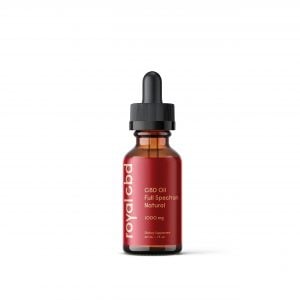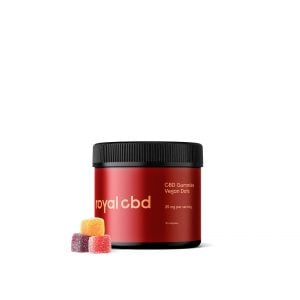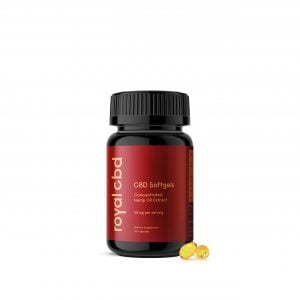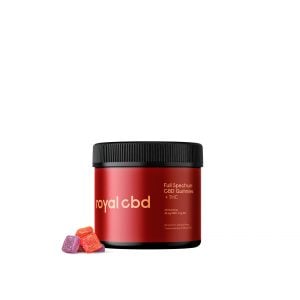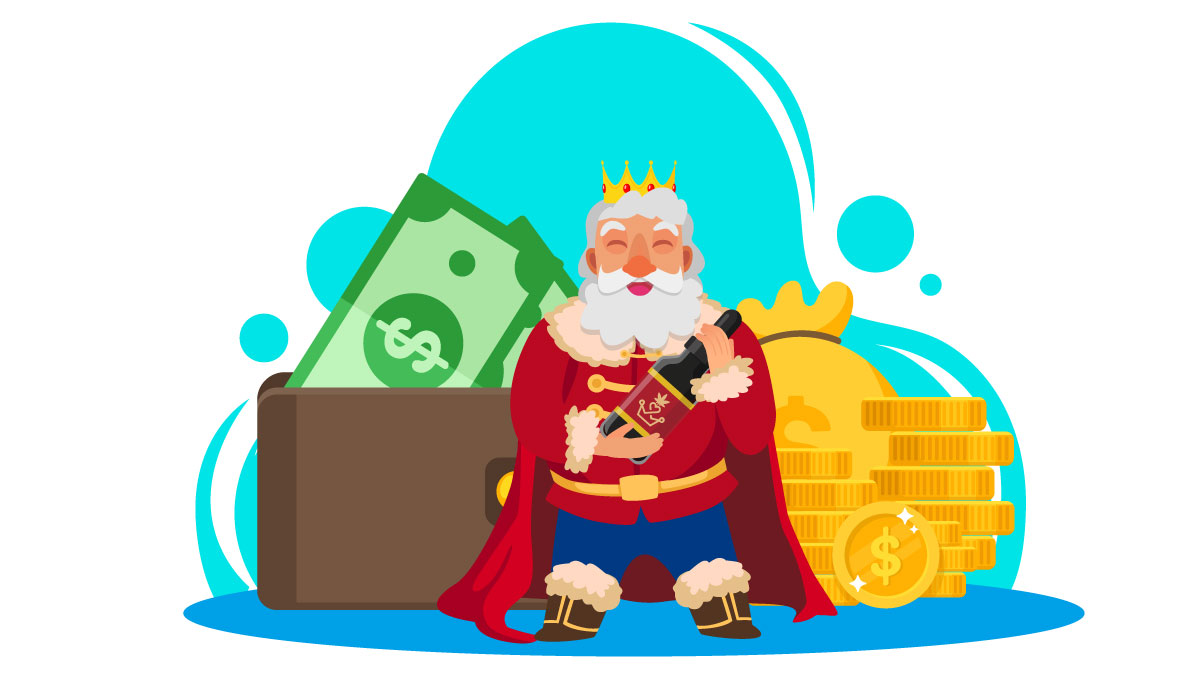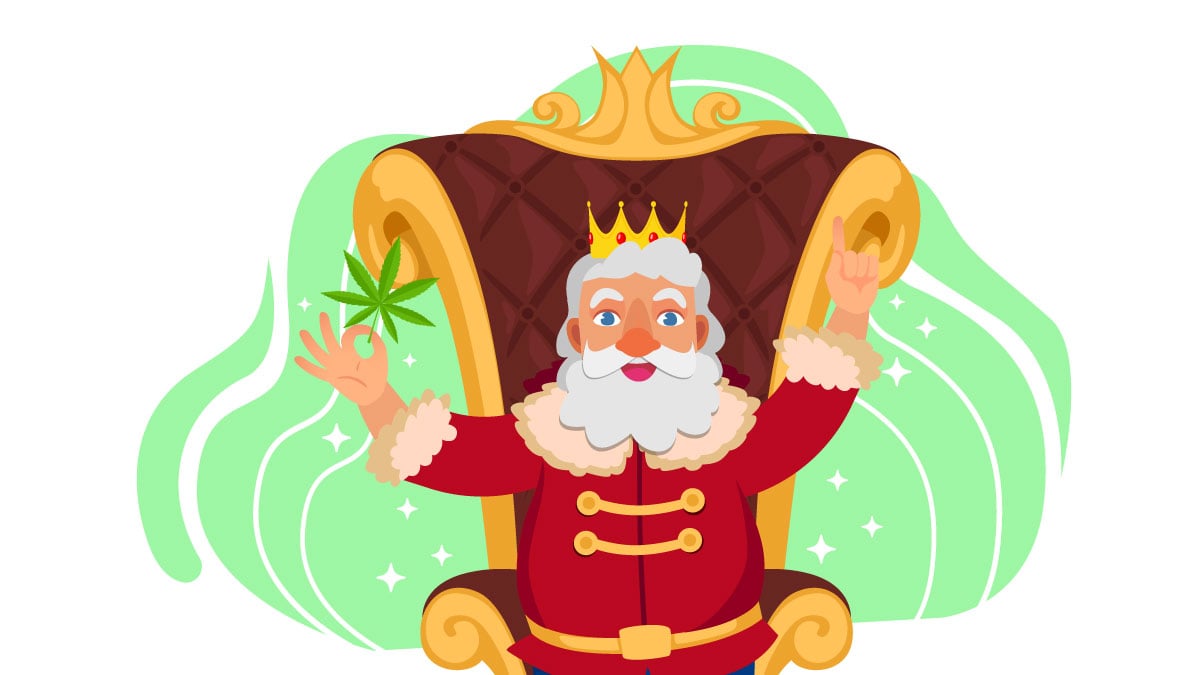How much is CBD oil?
What are the costs involved in the production of hemp extracts?
Why are some CBD oils so expensive, while others are claiming to bring you relief from every health problem at a bargain?
The pricing of CBD oil is a complicated subject. It’s the manufacturer’s duty to take care of the product quality because the FDA doesn’t regulate the labeling and production standards of hemp-derived CBD.
How much your CBD oil will cost depends on several factors, such as the source of hemp, extraction method, potency, and a brand’s reputation to name a few.
CBD products can cost anywhere from $9.99 to over $400. There are different formulas, sizes, and strengths to consider.
Not to mention that CBD is trending at the moment. It’s no wonder that the prices are at their peak.
In this article, we leave no stone unturned explaining the intricacies behind the cost of CBD and where to get the best value for your money.
Why Is the Quality of CBD Oil Important?
As mentioned, CBD is a booming and largely unregulated market. The FDA only acknowledges one form of CBD — an anti-epileptic drug Epidiolex — putting hemp-derived CBD in one bucket with other health supplements.
There are no official manufacturing and labeling standards in place when it comes to CBD oil. This creates space for fly-by-night companies that prey on uneducated customers, selling products that contain little to no CBD. Sometimes, these products are downright dangerous. For example, in 2018, the CDC reported 52 cases of poisoning with CBD products in Utah due to incorrect labeling.
These were the so-called cheap CBD oils.
What you need to understand is that a “cheap CBD oil” is a bad oxymoron.
Why Are Some CBD Oils So Expensive?
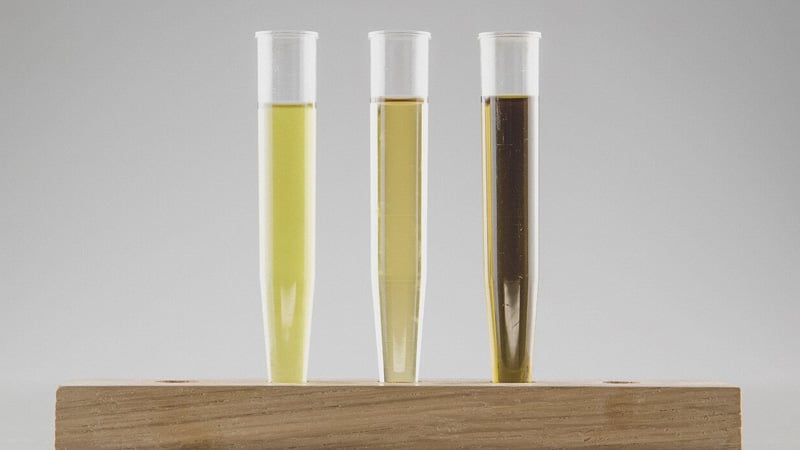
From growing hemp plants to extraction and laboratory testing, the process of making CBD oil is very expensive.
A high-quality CBD product can greatly improve your daily life, but if a company is cutting corners, you might be throwing your hard-earned money down the drain.
The manufacturer needs to take care of the source of hemp for their extracts, employ safe extraction technology, and knowledgeable staff that will be able to operate the equipment and invest in third-party lab testing to ensure the products are safe for consumption.
There’s a lot of money involved in the process.
On one hand, you have companies claiming to sell high-quality CBD oil on the cheap, which is impossible to achieve.
But on the other hand, there are many companies that overprice the value of their product, trying to sell “ultra-premium” CBD.
So, how do you calculate the price of CBD oil to tell if it’s actually decent and affordable?
How Much is CBD Oil? (Calculating the Cost per Milligram of CBD)
You can make one simple calculation to determine the cost of CBD oil, and compare it with other products to decide whether the price is competitive, too high, or below certain standards.
We’re talking about the cost per milligram of CBD. Ultimately, this is the most important figure when it comes to buying CBD oil. You can leave the size, extra ingredients, and product types aside. What you really need to know is how much CBD you’re getting for the money.
CBD can cost anywhere from $0.04 to over $3.00 per mg. Using that metric, you can narrow down that range by comparing different brands and products.
Below we cover the factors that influence the price-to-quality ratio in CBD products.
Give them a quick read and you’ll no longer need to wonder why some CBD oils are more expensive than others.
Factors that Influence the Cost of CBD Oil
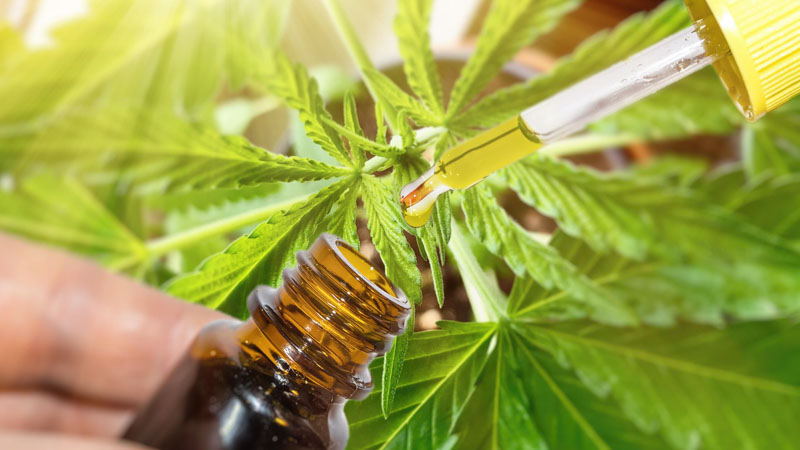
The quality of ingredients is the main factor that impacts the overall cost of CBD oil. But what makes a quality CBD product?
There are five key things to consider: the source of the company’s hemp, extraction method, potency, third-party testing, and the product’s formula.
Premium products like Royal CBD oil are priced a bit higher than the regular market value due to rigorous quality procedures involved in the manufacturing process. But on the other hand, when you buy from a premium brand, you can take advantage of discounts, bulk pricing, and special reward programs to make their products more affordable.
For example, at Royal CBD, you can join our Royalty Program, where each purchase provides crown points that you can spend on your next order and save more money on your favorite products or try out a higher-potency oil for less.
Let’s see how different factors affect the price of CBD oil.
Hemp Source
The type of hemp a CBD oil is extracted from is one of the primary factors affecting the quality of the end product. The best CBD oils are made with organic, pesticide-free, and non-GMO hemp. As you may guess, it’s more expensive to use organic hemp, and the price usually reflects that.
Moreover, if the company uses other organic ingredients in its CBD oil, the price will be likely driven even higher.
Fortunately, as hemp continues to gain popularity in the U.S., using American crops becomes more affordable than sourcing the plants from Europe as the majority of companies would do a few years ago. This can contribute to lowering the average market price of high-quality CBD products.
Extraction Method
There are many ways to extract CBD from the hemp plant, from steam distillation to natural solvent extraction, hydrocarbons, and CO2.
CO2 extraction is considered the best method to extract consistently high concentrations of CBD without hurting the environment on the way or leaving behind toxic solvent residue. Because of that, CO2-extracted products are typically more expensive than those obtained through steam distillation or alcohol extraction. If a company uses CO2 technology, this means they are committed to quality. A CO2 extraction machine can cost between $135,000 – $150,000.
At Royal CBD, we use CO2 in its supercritical state, where it changes its state from gas to liquid and leaves behind dark, concentrated extracts that we then suspend in premium-grade MCT oil for higher bioavailability.
The cheapest extraction method involves the use of hydrocarbon solvents. However, they’re potentially dangerous for both the manufacturer and the user. This is the type of extraction you should avoid.
Potency
The potency of CBD oil refers to the total concentration of CBD inside the bottle, expressed in milligrams. The stronger your CBD oil, the more effective it may be in managing your symptoms. High-potency CBD oils are also good for heavier people or those who know their effective dose and would like to save money on their product.
For example, a person taking CBD for general wellness may find a 150 mg oil beneficial, whereas someone with serious symptoms may need more CBD (e.g. 600 mg or 1000 mg) to start feeling better.
Stronger products are usually more expensive, but manufacturers often decide to cut down on the price per mg of CBD. Therefore, when you consider how many times you’d need to renew your supplies with lower potency, a stronger product may prove more cost-effective in the long run.
Third-Party Testing
Most reputable CBD brands interested in raising the quality standards in the industry use independent laboratories to test their products for potency and purity. The cost of testing oils in a third-party lab typically elevates the price, but it’s legitimate quality proof that tells you exactly how much CBD is in your oil and whether or not it contains any potentially unwanted substances.
If a brand doesn’t publish Certificates of Analysis from the lab — they should at least make them available upon request — it’s a sign that the cheaper price may not be worth it.
Other Costs: What Else Can Impact the Price of CBD Oil?
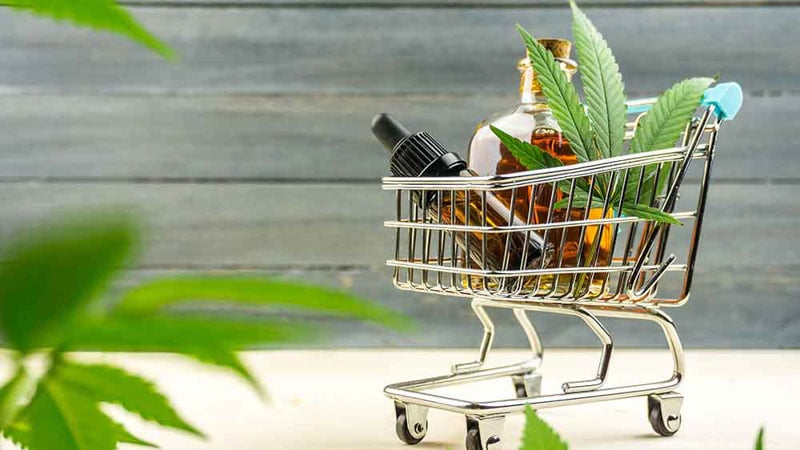
Oftentimes, you’ll need to pay for the brand’s reputation. When you choose a premium brand that has a well-established position on the market, they may price their products a bit higher than the competition. However, when choosing a top-of-the-line brand, you gain many perks like all-natural ingredients, reward programs, subscription pricing, seasonal deals, and more. That’s what we do with our products at Royal CBD. While we admit our products are priced slightly above our competitors, the price covers organic ingredients, high-grade extraction technology, rigorous quality testing, and customer service that is able to answer all your questions about CBD and help you pick the right product for your needs.
Finally, how much your CBD oil will cost depends on where you buy it from. Some people prefer to shop for CBD locally, which is undoubtedly convenient when you live near a cannabis dispensary, vape store, or pharmacy. However, products found over the counter in local shops are usually more expensive than those found online due to extra operational costs store owners must cover. When you buy CBD online directly from a brand, you cut out the middleman on top of taking advantage of the aforementioned discounts.
Now that you know why some CBD oils are more expensive than others, let’s break down the pricing of different forms of CBD.
How Much is CBD Oil?
Quality CBD oil drops cost between $0.09 – $0.17 on average, with $0.05 on the low end, and premium oils costing upwards of $20 mg per mg. Usually, high-potency oils will be less expensive per mg than low-potency extracts, although the bottle itself will cost more in total. The Royal CBD oil costs $0.09 – $0.20 per mg of CBD depending on the selected strength.
How Much Are CBD Capsules?
CBD capsules are available in a variety of potencies, but the most common is 10 mg and 25 mg. The higher the potency, and the larger the bottle, the lower the price per mg despite the higher overall cost. On average, CBD capsules cost $0.09 – $0.13 per mg; the price can be as low as $0.04, and as high as $0.20. At Royal CBD, we offer full-spectrum softgel capsules at $0.11 mg per mg of CBD.
How Much Are CBD Gummies?
Similar to capsules, CBD gummies usually contain from 10 mg to 25 mg of CBD per piece, with prices varying between $0.09 – $0.20 per mg. The most common size for gummies is a 30-count bottle, although some companies sell their gummies in 60-count or 120-count bottles. Again, the higher the potency, and the larger the size, the lower the price per mg. Royal CBD gummies are available in a 30-count bottle with a total of 300 mg CBD (10 mg per gummy) at $0.18 mg
How Much Are CBD Topicals?
CBD topicals range from salves, gels, creams, and lotions typically formulated to provide localized relief from physical discomfort. They can cost anywhere between $0.07 – $0.10 per mg on the low end and up to $0.36 on the high end. The average cost per mg for CBD topicals is around $0.12–$0.19 per mg. These may vary in sizes, from 1 oz to 4 oz containers with as much as 1000 mg of total CBD.
At Royal CBD, we offer two types of topical products: a cooling roll-on gel with menthol, and a warming salve. The salve costs $0.14 per mg; the price of the gel is on the higher end, costing $0.16.
How to Save Money on Premium CBD Oil?
- Purchase online
- Buy CBD in bulk
- Choose high-potency oils
- Join reward programs
- Subscribe to newsletters
- Take advantage of discounts and coupon codes
Key Takeaways on the Costs of CBD Oil
The process of making CBD oil is very expensive, so you shouldn’t expect companies to sell premium products at a loss. If you see a company claiming to sell quality products for a song, be wary. There are many sketchy manufacturers out there selling mislabelled, sometimes downright dangerous products.
But does that mean you can’t find affordable CBD products online or near you?
Of course, you can!
At Royal CBD, we strive to make our premium extracts affordable for everyone while providing education and top-of-the-line customer service. Although our products cost slightly more than the average market prices, there are plenty of options to save money on our CBD oils, from regular guaranteed first-time discounts to reward programs. The entire Royal CBD line is sourced from organic hemp, extracted with supercritical CO2, and extensively tested for safety and potency in a certified laboratory.
Whether you want to ask us about the benefits of CBD or need help with choosing the right product for your individual situation, send us a message via our contact form, and we’ll be happy to provide you with all-around guidance.
